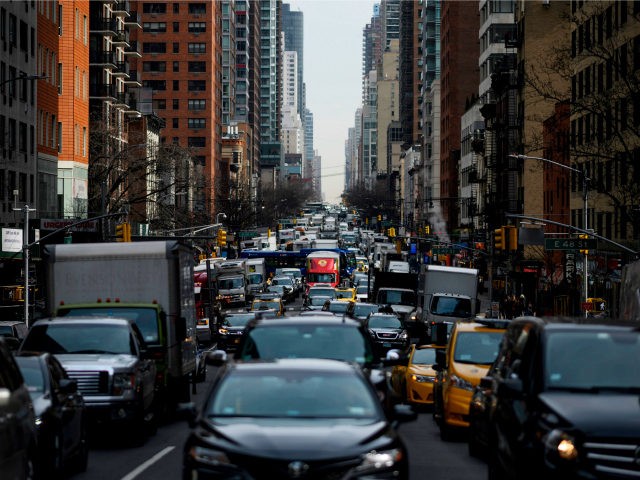A Bloomberg Opinion editorial from its editorial board said cities should have an “ambitious target” if they want to “dramatically improve air quality and extend lives shortened by pollution,” including banning all cars that are not electric.
The board cited Amsterdam as a city that has proposed an “outright ban on gas and diesel vehicles by 2030.”
“That may sound extreme, or at least like the kind of thing that should only be attempted by a smallish city with picturesque bridges and lots of cycling enthusiasts,” the board wrote. “But the Dutch capital isn’t alone; it joins Chengdu, Hamburg, Madrid, Oslo and other cities in moving toward at least partial car bans to reduce pollution.”
The board said cities should be thinking about this kind of plan and claimed, without citing any sources, that by 2050, people will be “living and working in increasingly congested urban centers.”
“Simply banning dirty cars isn’t enough on its own. Instead, cities must be ready to ease the transition,” the board wrote.
The board asserted that people will buy into the car ban if it can be shown that doing so has fewer downsides than benefits, including fighting climate change.
“Pollution from cars not only contributes to climate change, but it’s also a threat to well-being: Studies have found that it contributes to asthma and lung conditions, mental-health problems, and even premature deaths. Amsterdam’s council says it reduces life expectancy there by a full year,” the board wrote.
But it still will be hard for Americans to go along with such a plan, the board wrote, so it suggested government regulations and “inducements” could help with compliance.
“Cities should offer up-front incentives to buy zero-emission cars, for instance, as well as non-financial benefits such as parking vouchers,” the board wrote, adding, “Higher taxes on petrol and diesel cars — whether via congestion tolls or at the pump — will encourage drivers to switch and offset some of the costs of the transition.”
The board admitted the plan for banning fossil-fuel vehicles could come with a “steep” cost, requiring a complete change to the transportation infrastructure:
Unavoidably, getting to zero-emissions will mean large-scale investment. Cities will not only need to expand and improve public transit options, but also invest in charging stations, electrify municipal taxis and buses, make accommodations for the elderly and disabled, design appealing public spaces for pedestrians, and more. Drivers should bear some of these costs.
So, according to the board, people can use other technology, including bike sharing, “underground skating pods,” and “delivery drones.”
“Getting to a zero-emissions future sounds hard and is,” concluded the board. “But making increasingly crowded cities more livable has to become an urgent public-policy goal.”
The board said if it does not opt for this “ambitious target” to save the planet, it will regret it and “get left in the dust.”
Follow Penny Starr on Twitter.

COMMENTS
Please let us know if you're having issues with commenting.